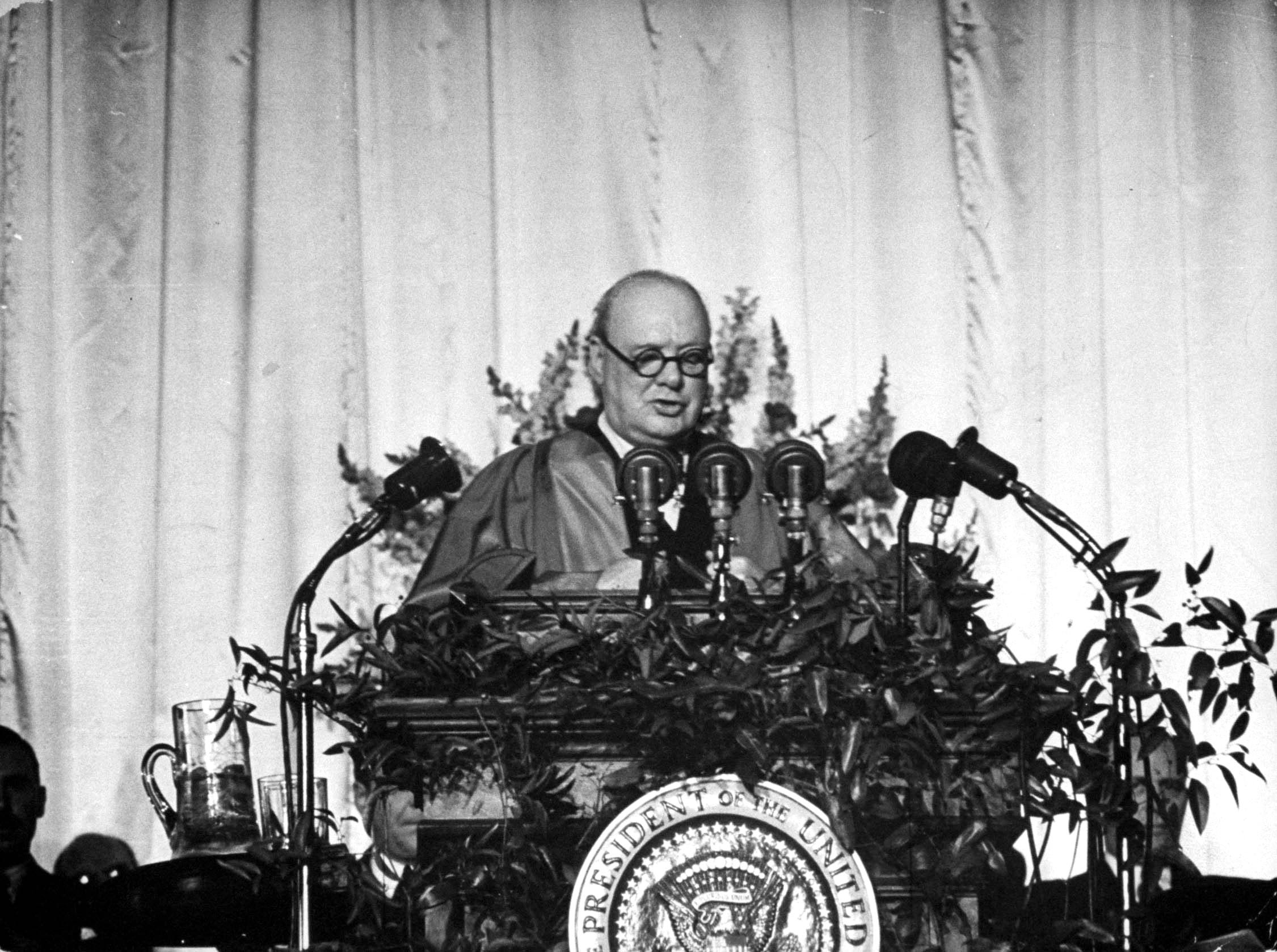
“The world last week listened to some blunt words from Winston Churchill.” When LIFE reported on the former (and future) prime minister’s now-famous Iron Curtain speech delivered on March 5, 1946, the magazine suggested that its readers would do well to listen. Churchill had somberly told a small audience at Westminster College in Fulton, Missouri, that the time had come to take action to prevent World War III. “Coming from a man who warned of World War II before the world was ready to listen, his words commanded sober thought.”
Churchill’s speech, which he titled “The Sinews of Peace,” came at a time when the Allies’ coalition with the Soviet Union had morphed into distrust. “From Stettin in the Baltic to Trieste in the Adriatic, an iron curtain has descended across the continent,” he warned. The Soviet Union, he said, was exerting unchecked control over an expanding geographic area. The only way to keep it in check was through a fortified alliance between the U.S. and Britain.
Though the speech is famous for introducing “iron curtain” into the Cold War vernacular, it was not the first time the phrase had been uttered. It was used in the Babylonian Talmud (compiled between the 3rd and 5th centuries) and by Queen Elisabeth of Belgium to demonstrate her country’s stance against Germany as World War I began. It appeared several times in literature, and Churchill himself used the term in telegrams to President Truman in 1945.
But from that day forward, no other phrase would better encapsulate the line—both geographic and ideological—that separated the Eastern Bloc from the West. One month later, LIFE reported on the world behind the iron curtain, where inflation, food scarcity and political tumult were rapidly becoming the norm.
Churchill amped up his rhetoric to emphasize the importance of cementing his country’s partnership with the U.S. “If all British moral and material forces and convictions are joined with your own in fraternal association,” he concluded, “the highroads of the future will be clear, not only for our time, but for a century to come.”
Truman, for his part, was present at the speech, sitting onstage in a show of solidarity. He knew that Britain, which was nearly bankrupt and still enforcing food rations, was on the wane as a world power, and needed the U.S. more than the other way around. Apart from the speech that day, the two men stuck mainly to light conversation. They “talked weather, family, countryside,” LIFE reported—“little politics.”
Liz Ronk, who edited this gallery, is the Photo Editor for LIFE.com. Follow her on Twitter at @LizabethRonk.
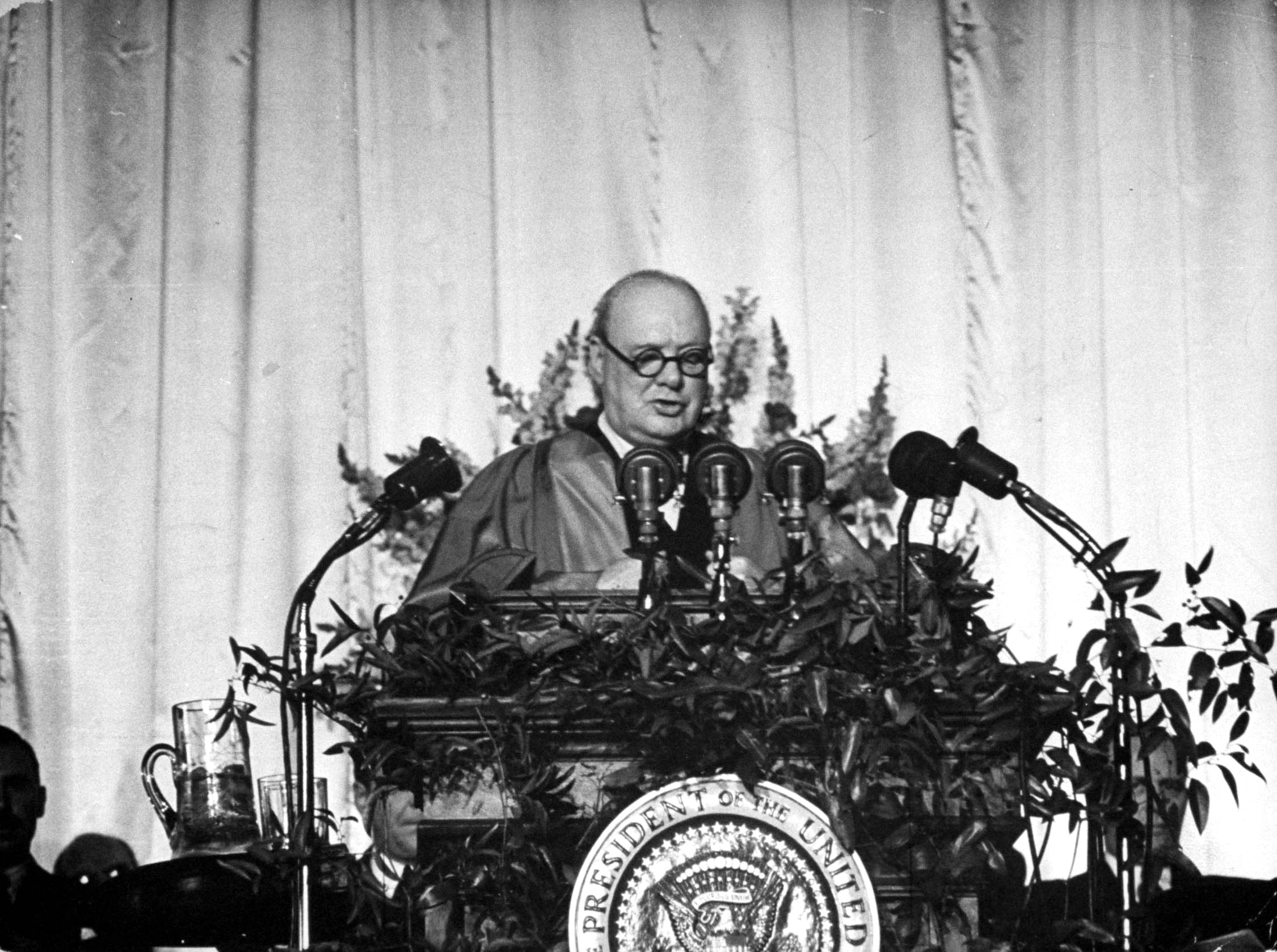
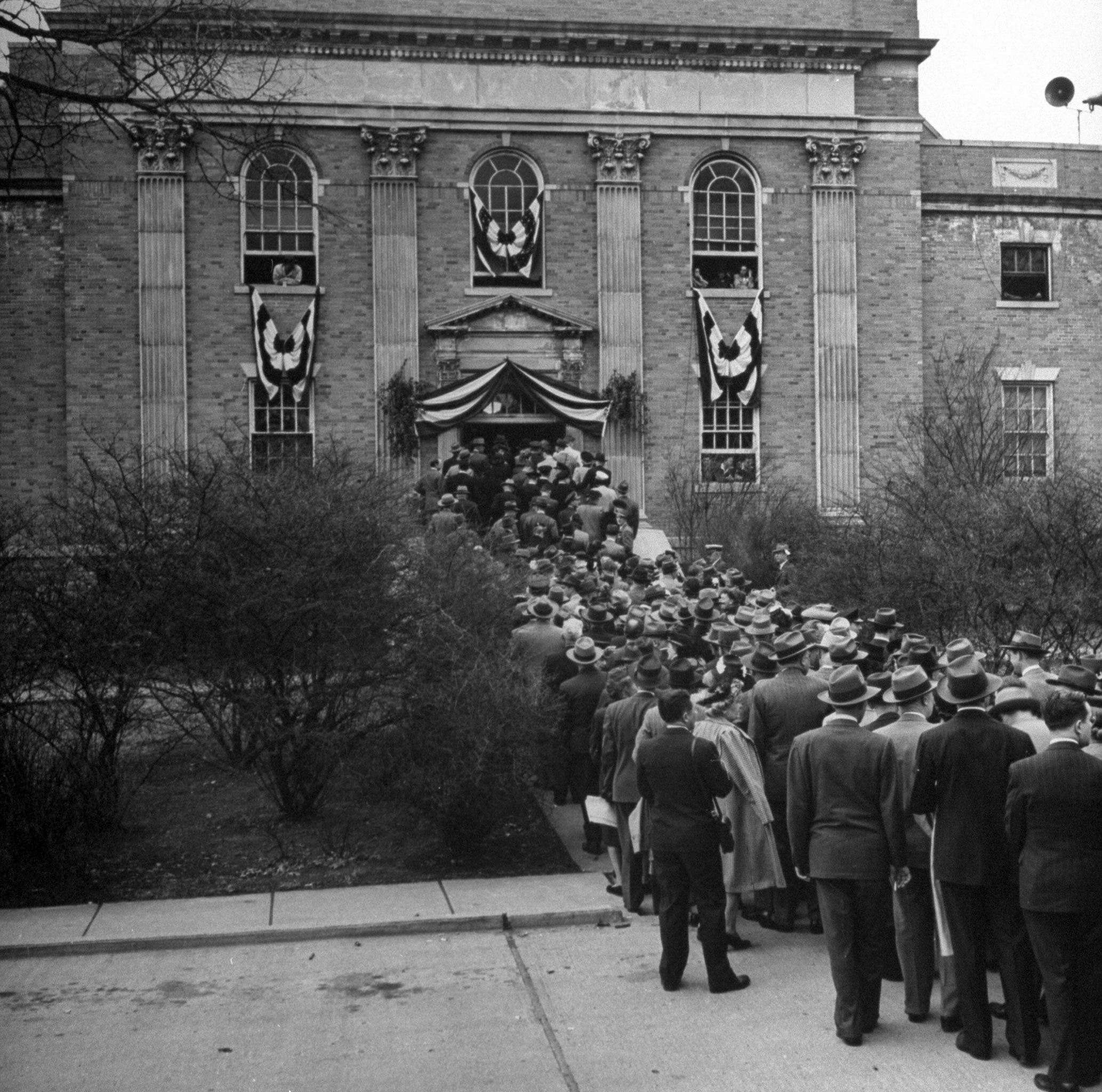
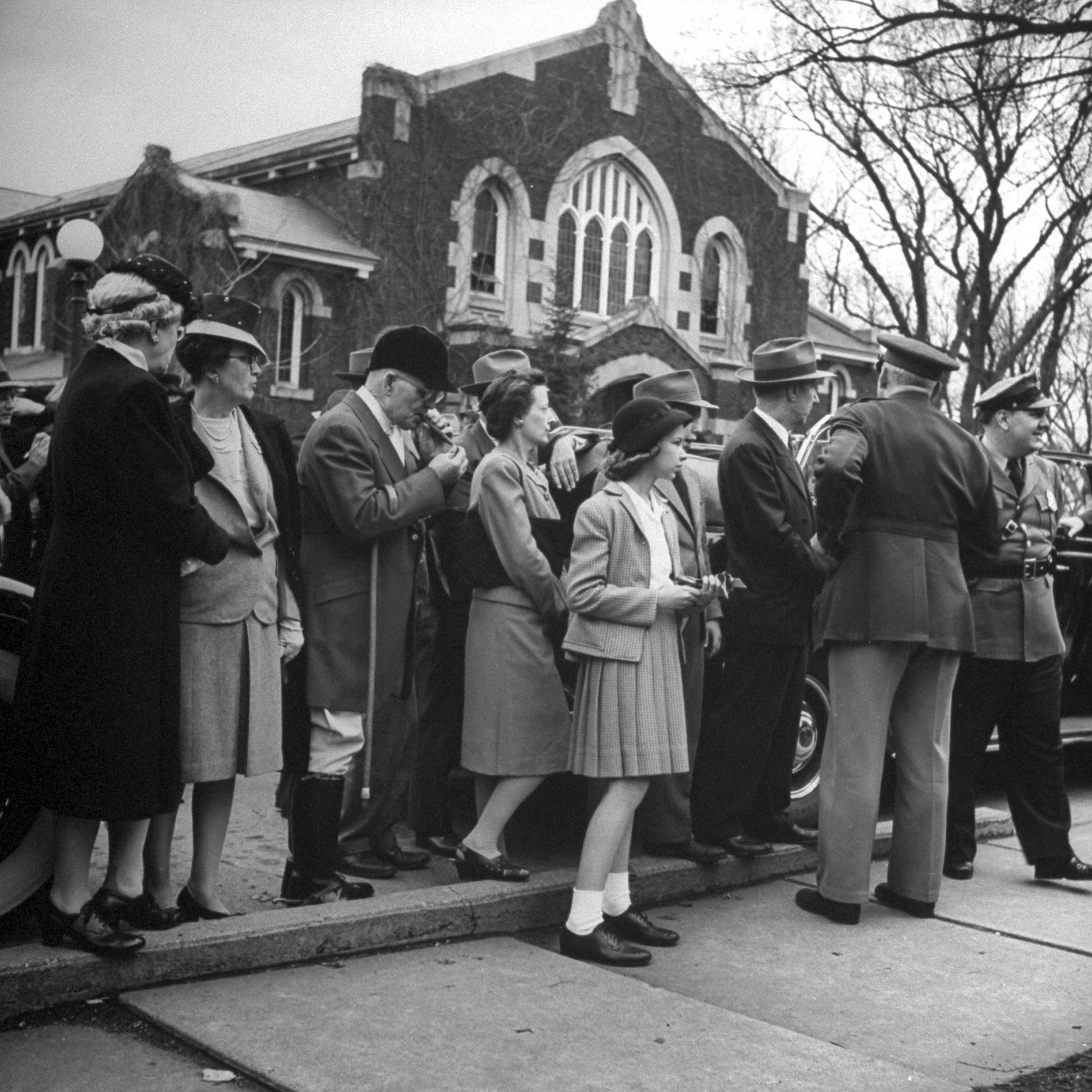
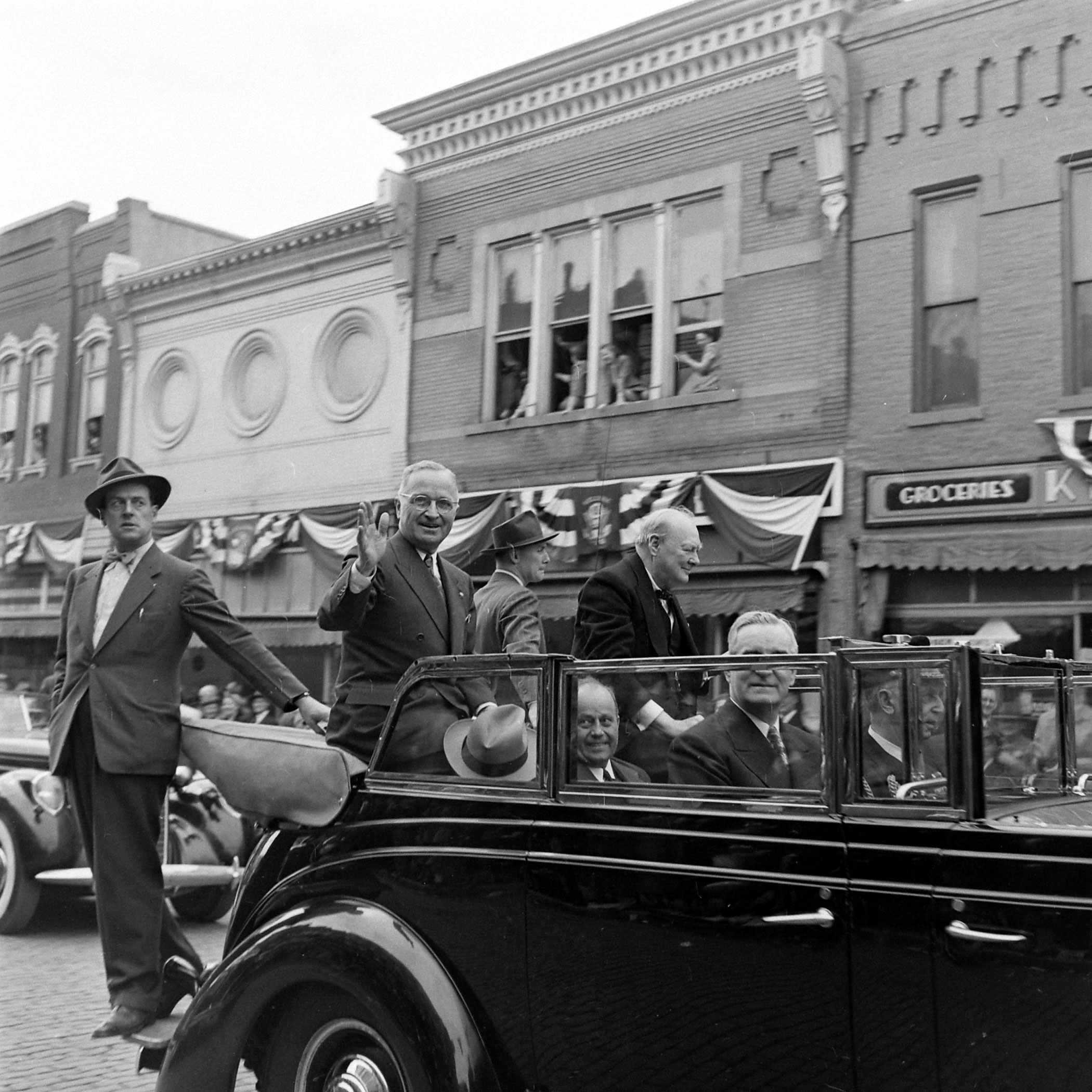
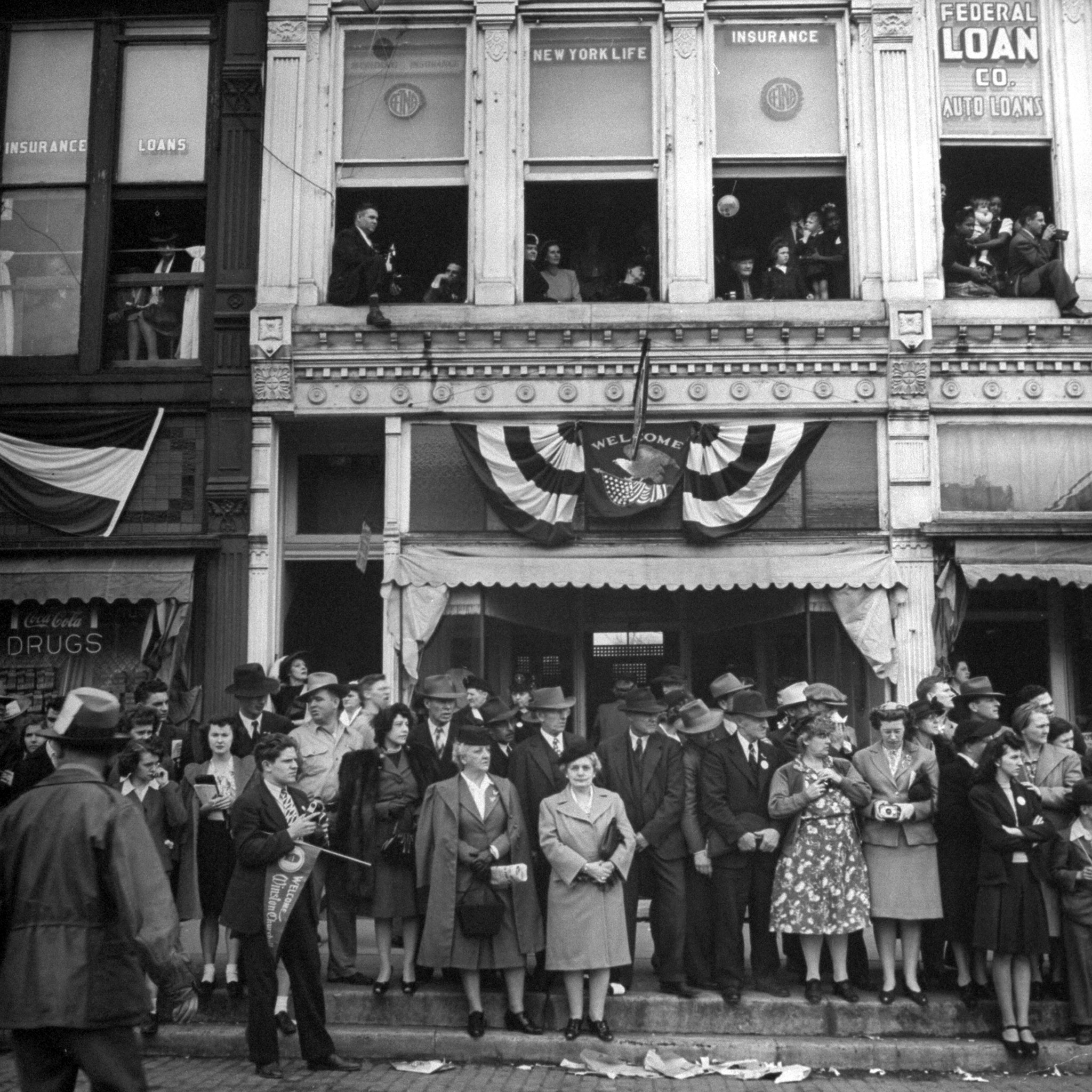
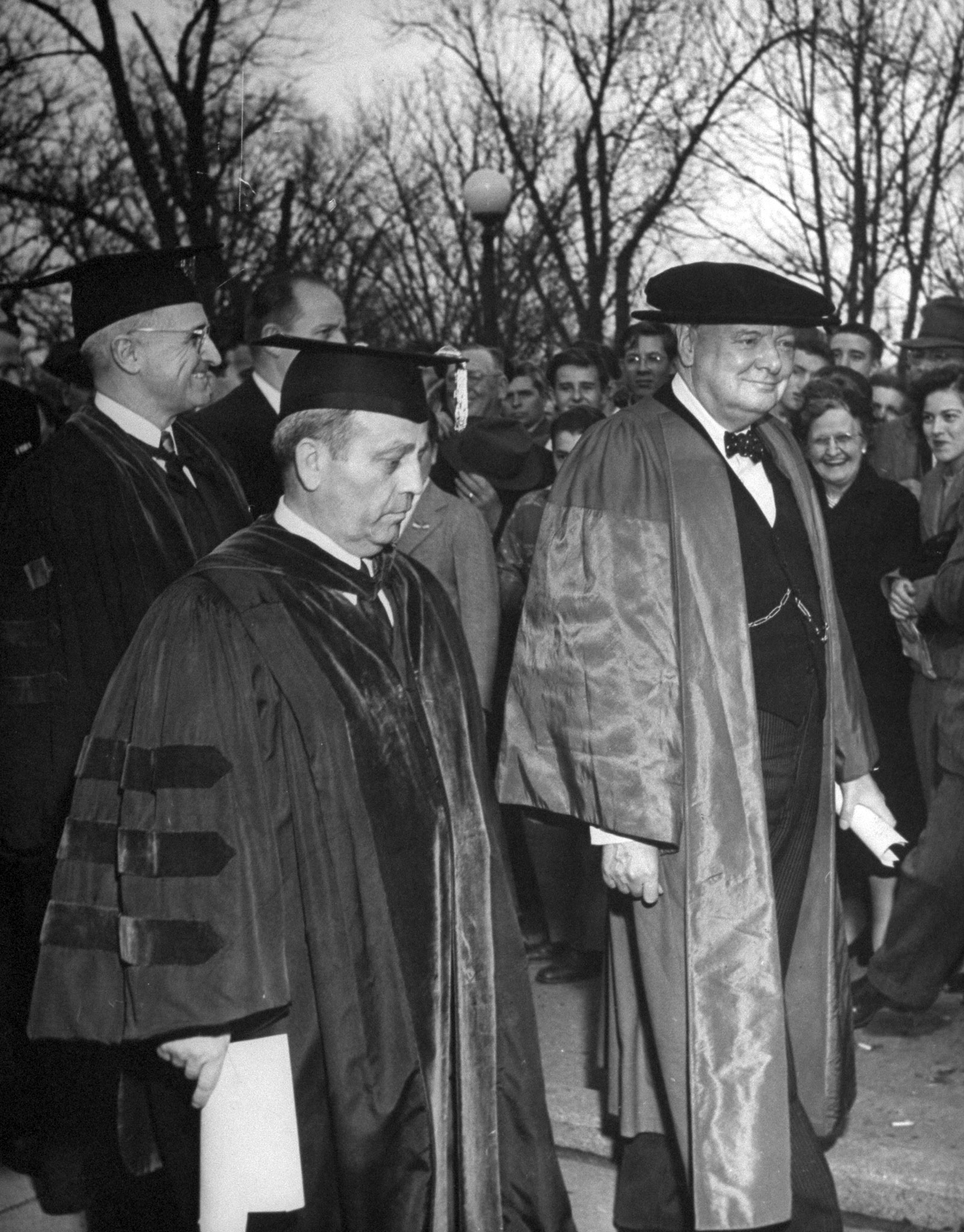

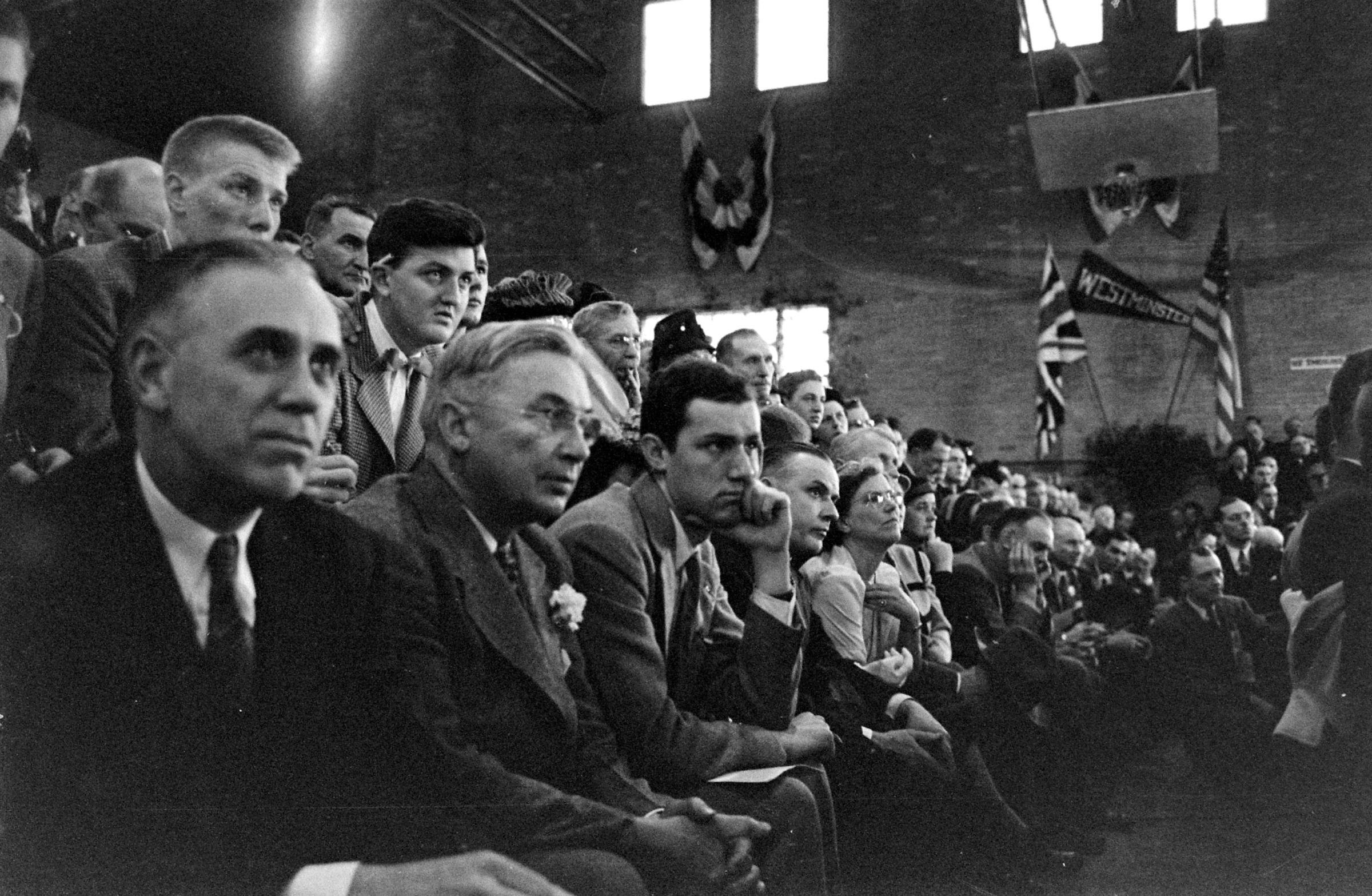
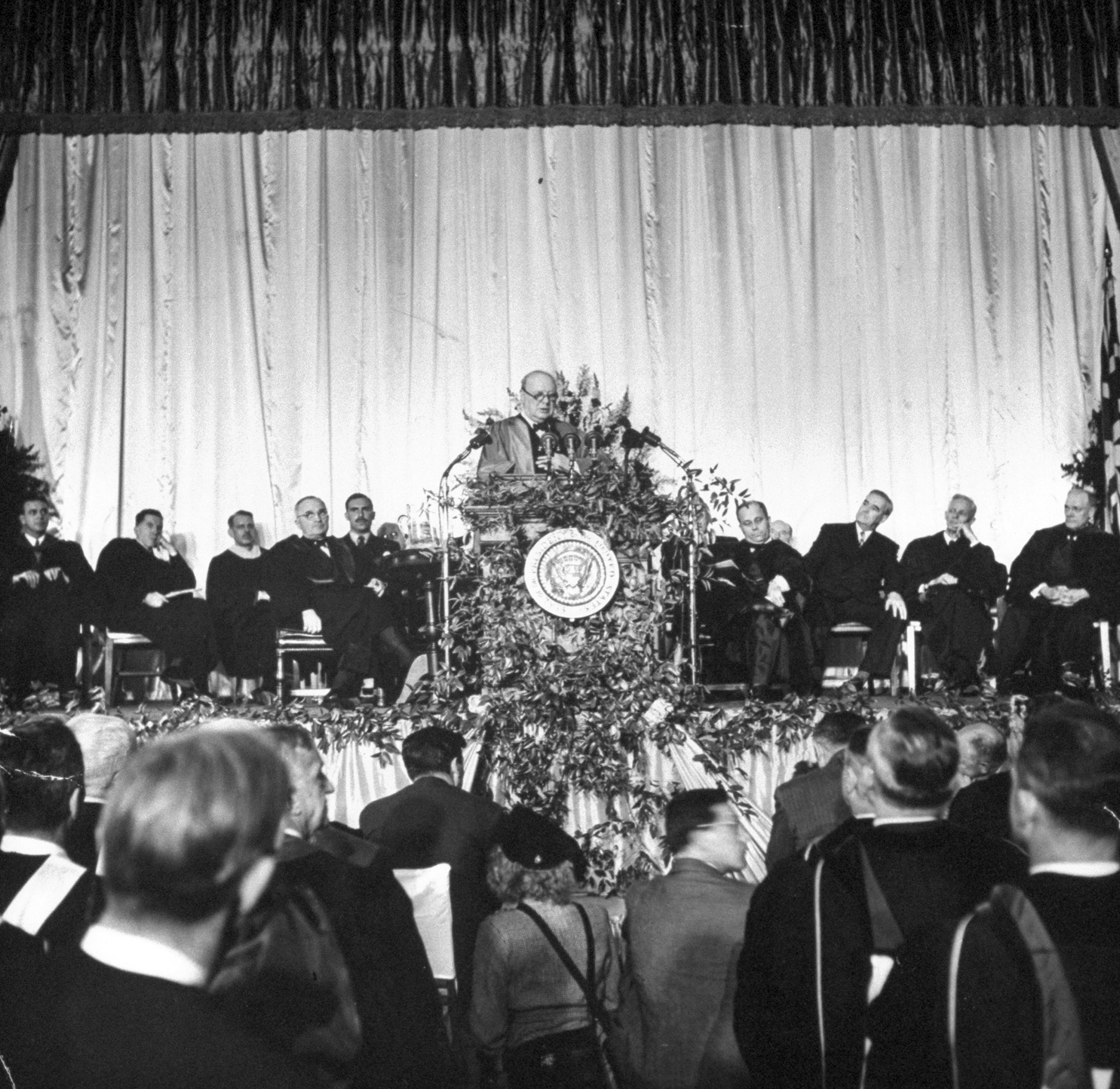
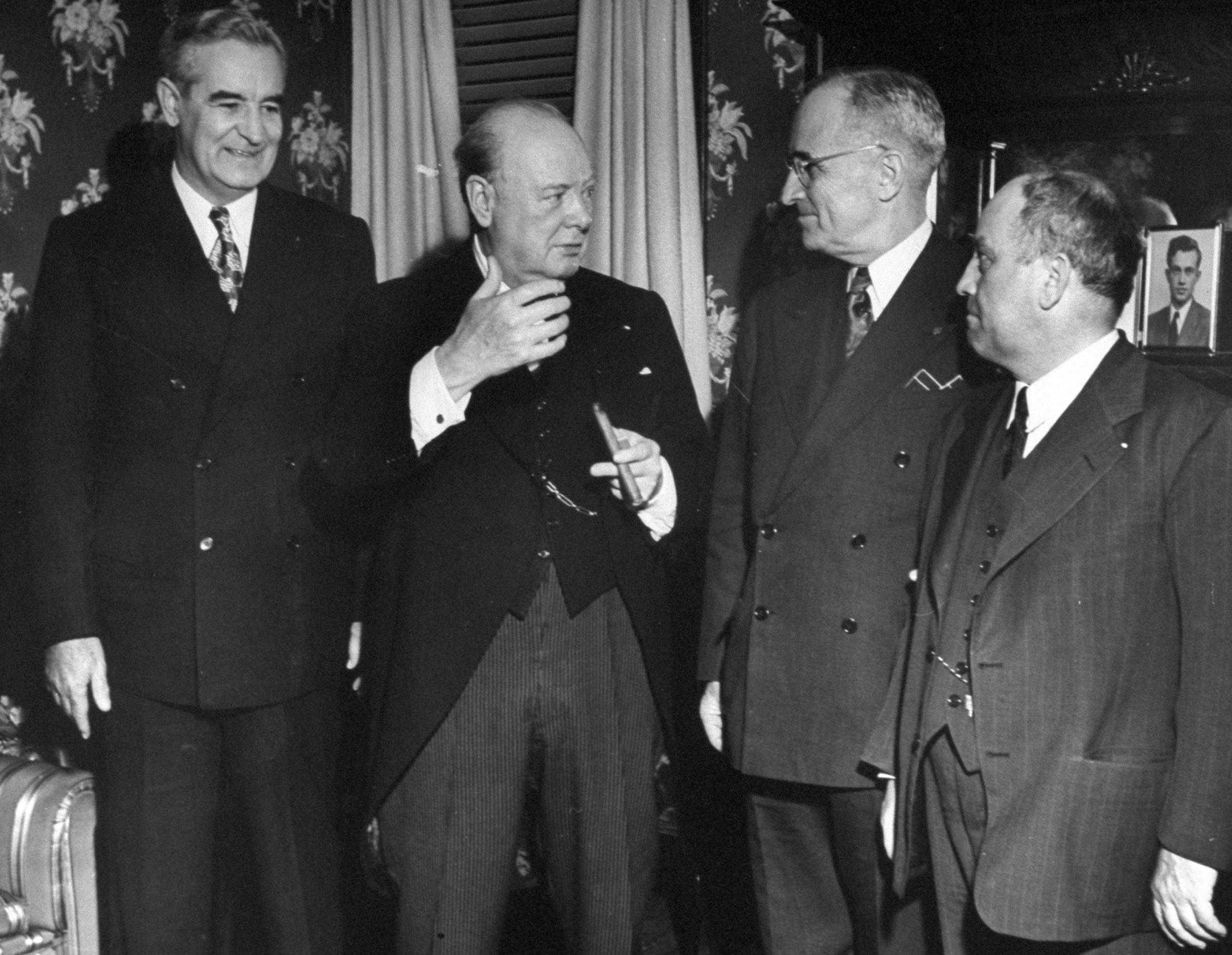
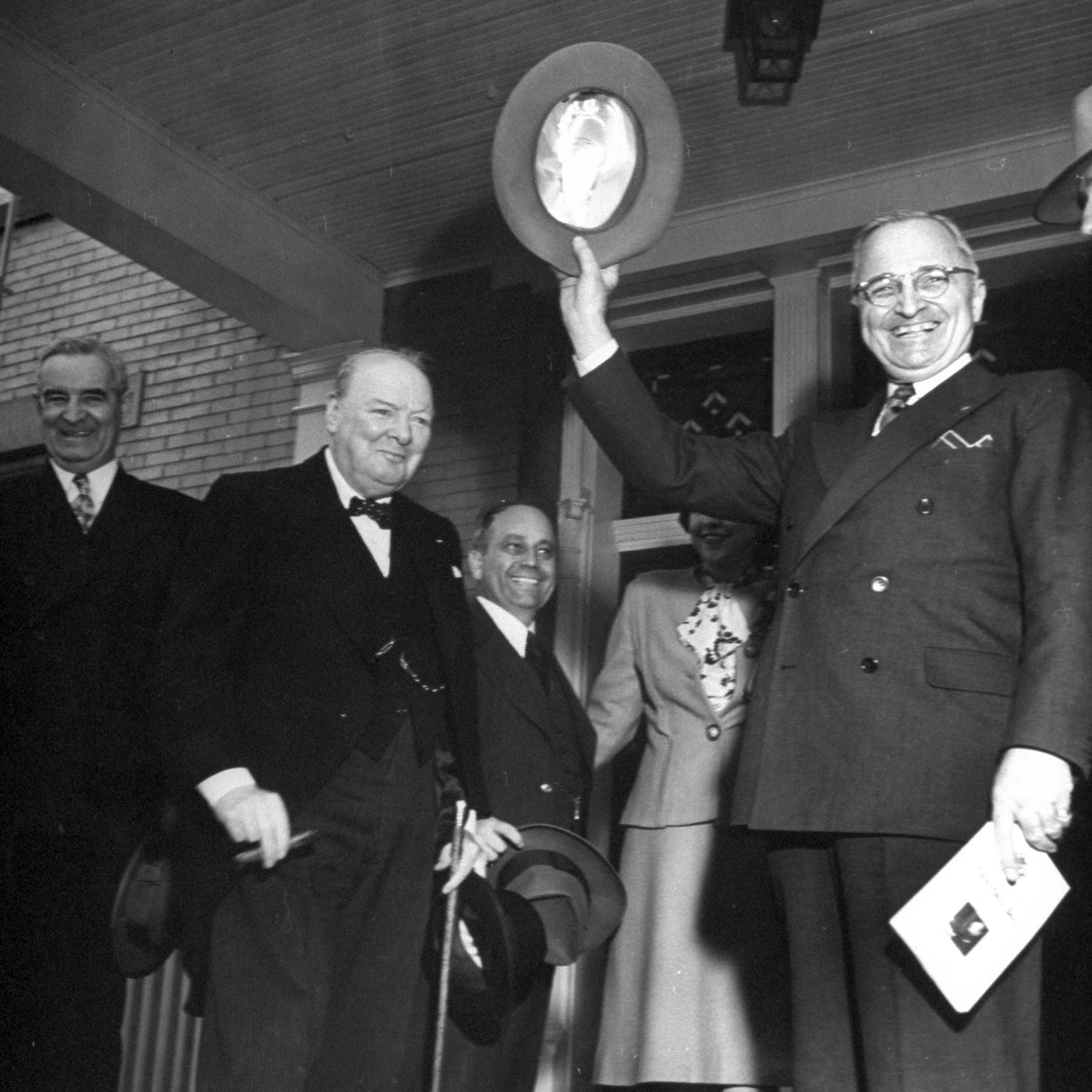
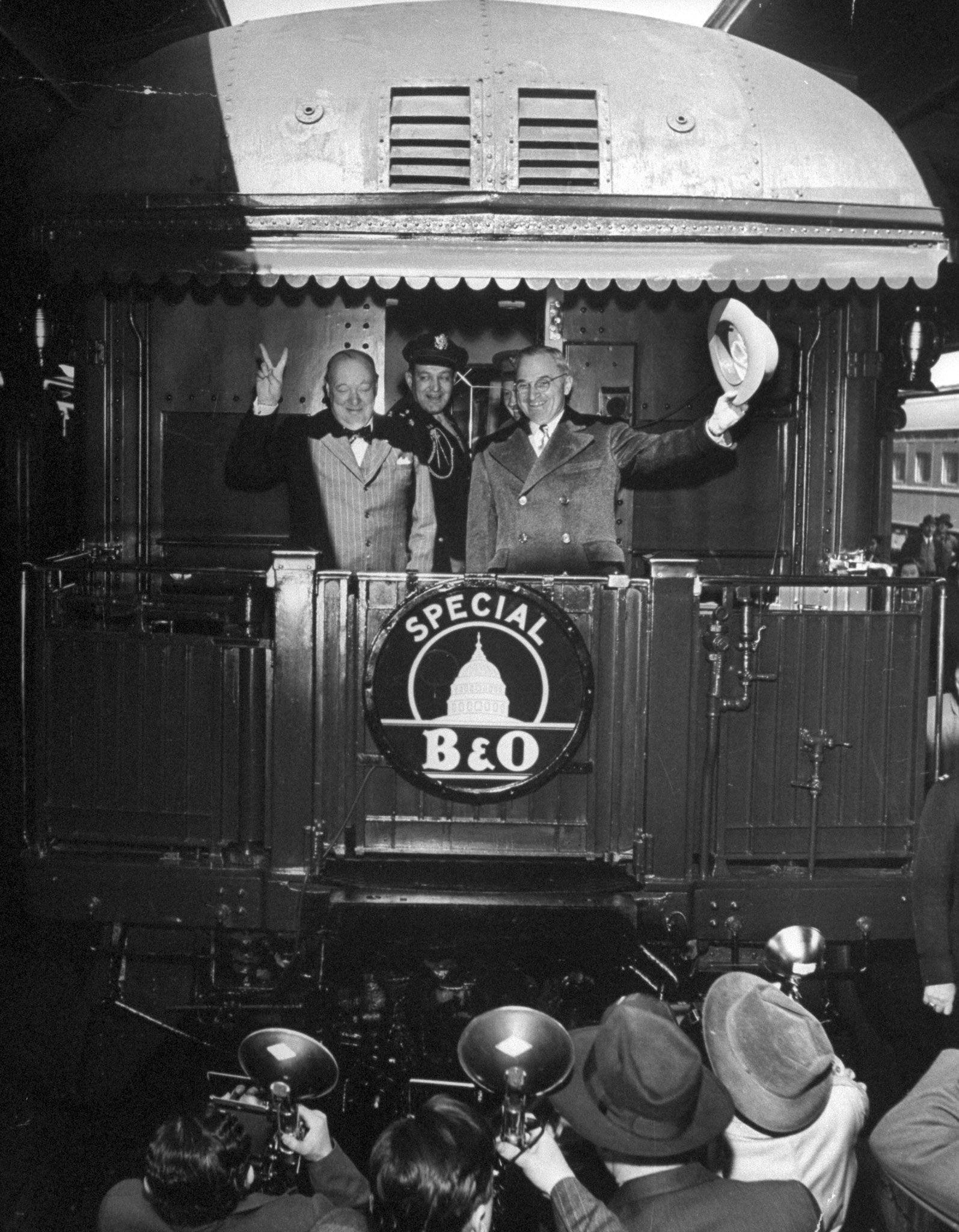
More Must-Reads from TIME
- Cybersecurity Experts Are Sounding the Alarm on DOGE
- Meet the 2025 Women of the Year
- The Harsh Truth About Disability Inclusion
- Why Do More Young Adults Have Cancer?
- Colman Domingo Leads With Radical Love
- How to Get Better at Doing Things Alone
- Michelle Zauner Stares Down the Darkness
Write to Eliza Berman at eliza.berman@time.com